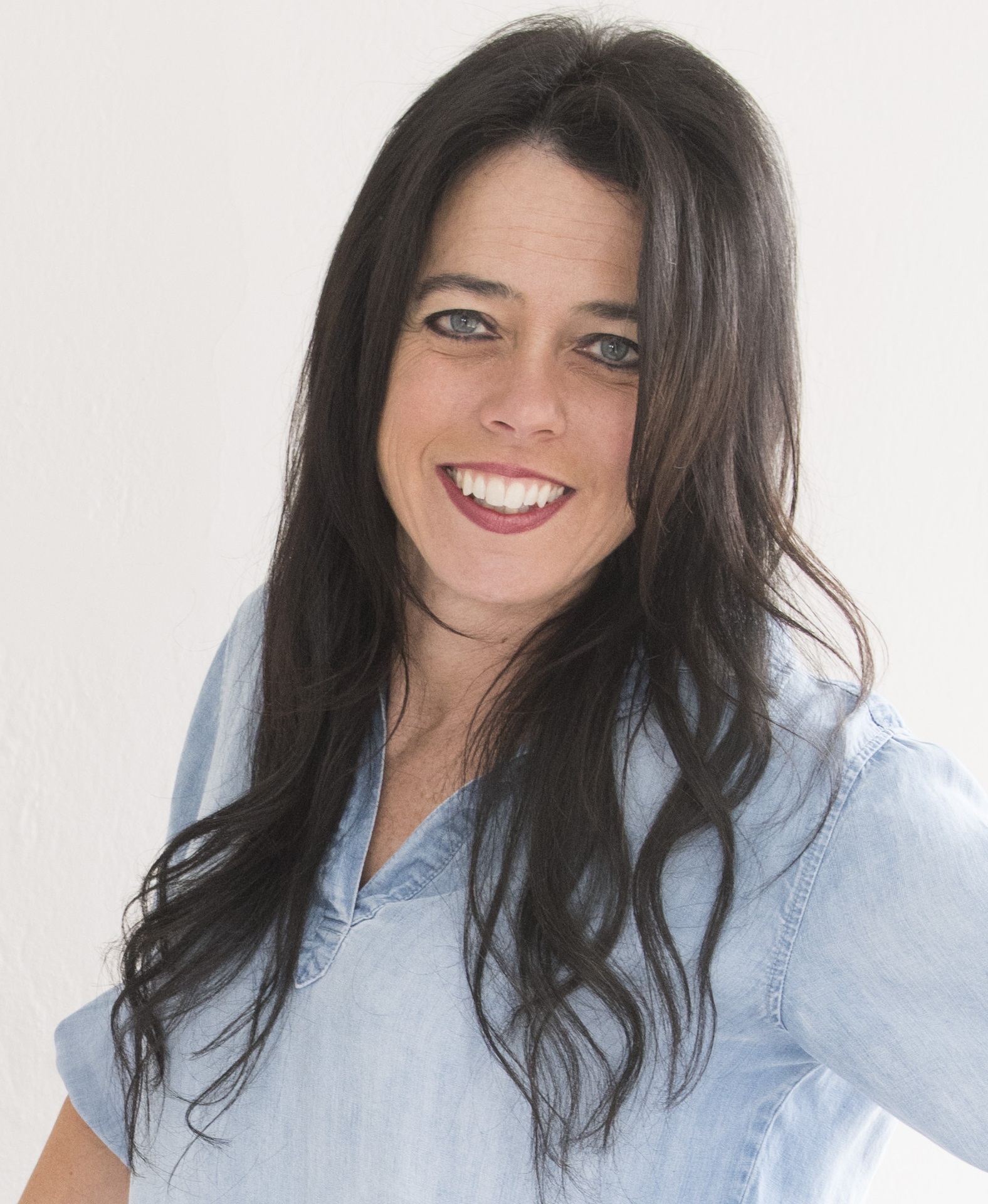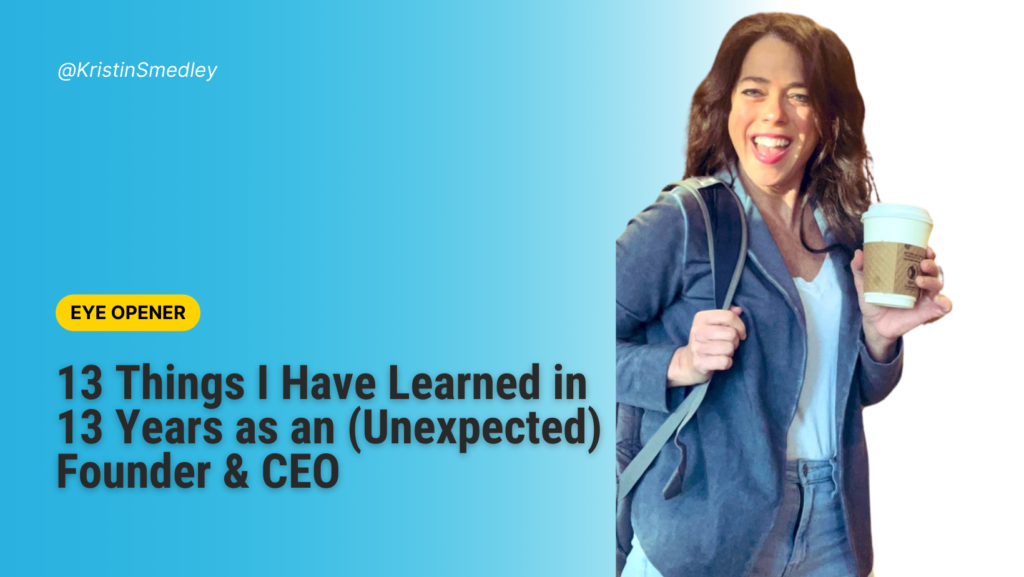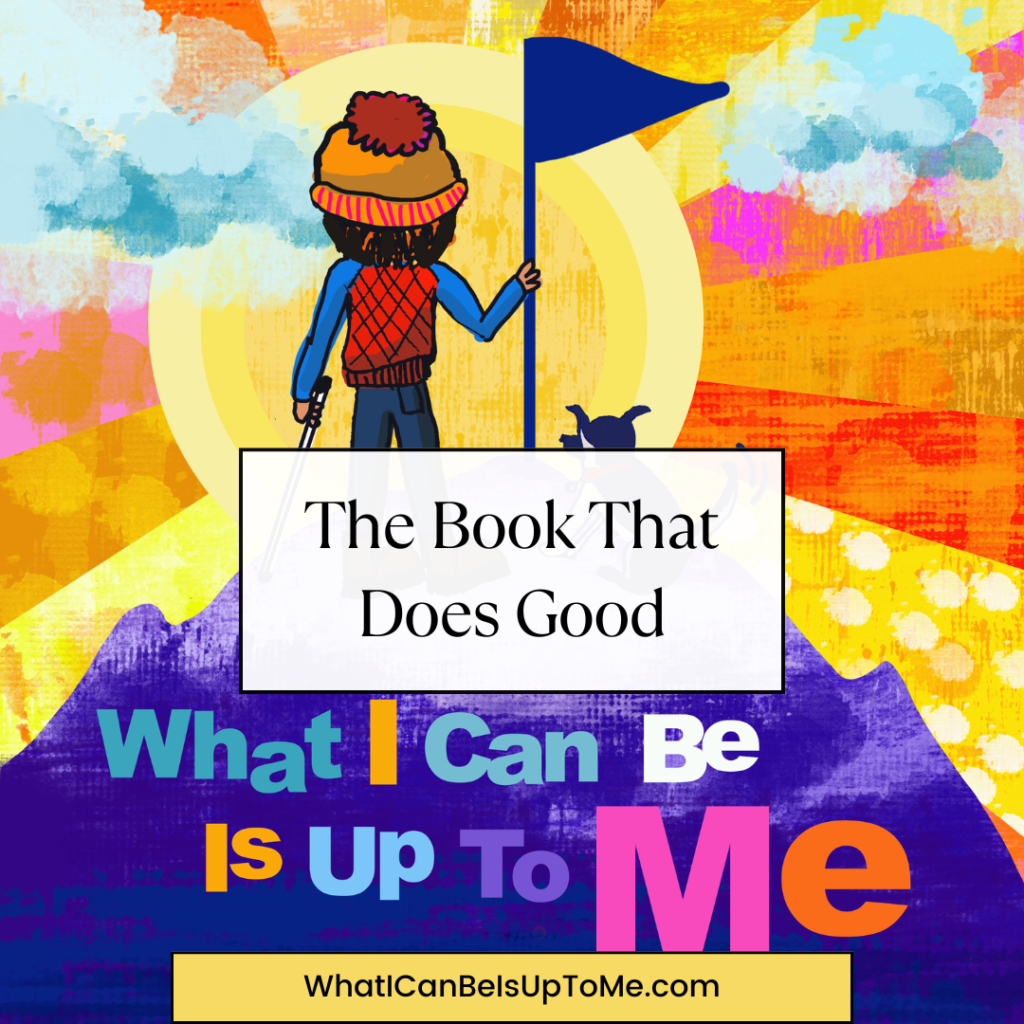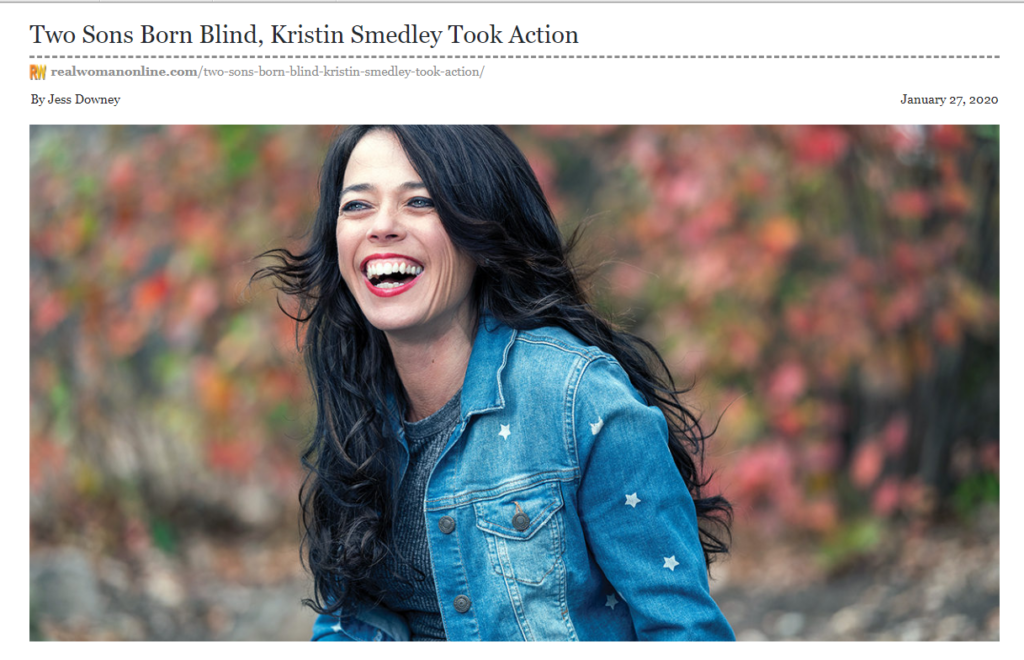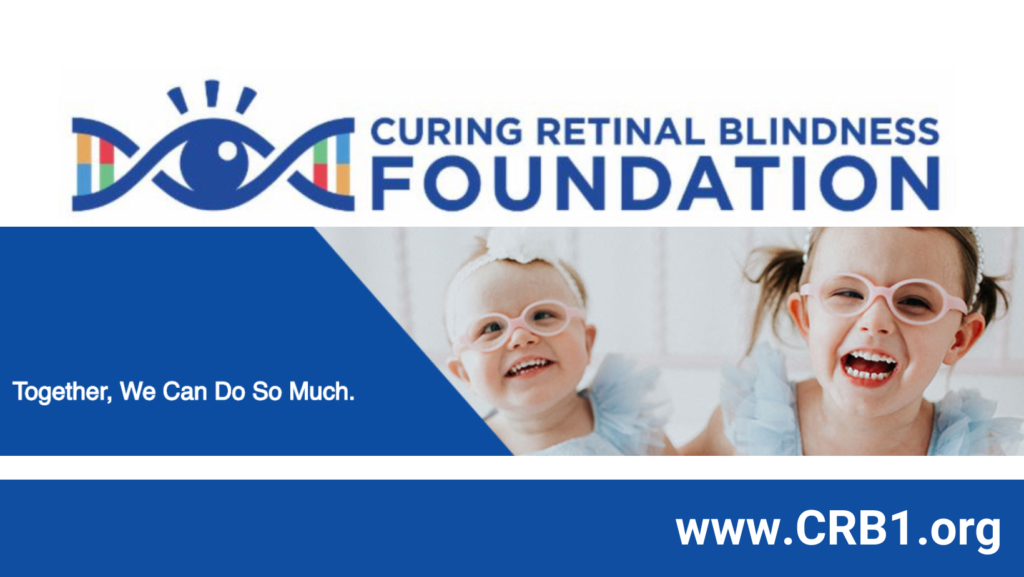Thirteen years ago, when I learned that a genetic blindness similar to the one affecting my sons was heading into a clinical trial for vision restoration, I asked the pioneer of that restorative gene therapy, Jean Bennet, “How can we be next?” She and others educated me, an elementary school teacher, on how to get started on the drug development process.
I only wanted to now how to get started; I figured that I would figure out the next right steps all along the way. Boy am I grateful I only looked at the staircase to drug development one step at a time because if I knew ALL of the STUFF involved in this, I would certainly have crumbled under the magnitude of work I was completely unqualified to do!
One next right step at a time, combined with asking for help and a few great people saying YES, I’ve been blessed to lead the Curing Retinal Blindness Foundation (CRB1.org) to connect to over $4 million for research for #CRB1, represent us at the United States Congress and the FDA, find patients & specialists all over the world, and become an influential voice and collaborator in #RareEyeDiseases… and have a heck of a lot of fun while managing a ton of frustration in this extraordinary field.
While I still feel I am learning on the job every single day, in honor of the CRBF’s 13th birthday this weekend, here are 13 things I have learned being an (unplanned!) Founder and CEO of a nonprofit, research & patient organization:
1. Persistence pays off: Persevere through challenges and setbacks and get really good at nagging (in a nice way, of course.)
2. Collaboration is cool: Operating in a silo sucks. Build partnerships. And, as my friend Bob Burg says, be a Go-Giver in those partnerships by adding as much value as you can. Being a go-giver, not just a go-getter, has taken me very, very far.
3. Advocacy is powerful: Advocate is a verb. If you don’t know what to advocate for or how to take action yet, connect with those you can learn from. Organizations like National Organization for Rare Disorders and Global Genes taught me how, why, what, when and where to advocate. And I have made lifelong friends in other advocates.
4. Empathy drives action: An extraordinary entrepreneur John Lee Dumas told me to never stop getting on the phone myself, as opposed to designating someone else, to talk with the families my organization serves. It’s one of the best pieces of advice I have ever received.
5. Innovation is essential: If you keep doing the same thing you’ll get the same result. If you want a breakthrough, find innovators, outside the box thinkers, creative problem solvers, and fund them.
6. Communication is crucial: Passion, communicated properly, drives progress on a mega level. I stood before my hometown 13 years ago and communicated my dream of curing blindness and changing how the world sees blindness. I was a stay at home mom with no experience here. They believed in my passion.
7. Resilience is a practice: Setbacks suck and people are mean. I learned what tools I need to stay resilient – among them are playing soccer every week and having “therapy” sessions (wine + girlfriends) often. Put your tools of resilience into practice every single day.
8. Time Management is essential: Burnout is real. Time blocking changed my life and my “no meetings day” once per week was the number one game changer to keep my huge smile smiling.
9. Learning never stops: As a non-CEO who wrote rap songs in high school science classes instead of learning science, I have had to constantly educate myself and seek out mentorship to grow and improve. People & podcasts have accelerated my learning 100x!
10. Fun is fundamental: Let’s face it, science is hard. Finding funding is hard. Life is hard. If there is no fun, there is no Kristin! I have made it part of my brand, because it is part of who I am: I may not be the best, brightest, wealthiest, whatever…. but dammit, I am fun. And whatever work we do together, we will have fun.
11. Adaptability is key: The landscape of rare eye diseases and research is constantly evolving, and being able to adapt to change has been vital in our success. I actually have a competitive advantage in being adaptable that I learned by watching my blind sons successfully navigate a world not built for blindness.
12. Gratitude is important: Recognizing and appreciating the support of our donors, volunteers, and partners has been essential in our moving so far so fast. Admittedly, gratitude is always on my mind, but it tends to get bumped down the list of priorities. I have recognized that and will get it back up to priority #1.
13. Hope is powerful: I know what hopelessness feels like. I know what it does to a person, a family, a community. But I have also seen the power, the fuel, the energy, the productivity and the results of hope. I choose to have and provide hope. Always.
These are just 13 of the many, many things I have been blessed to learn and become a version of myself that I know would not have been had I not been blessed with being dropped into the rare disease/rare eye disease community. I am still learning, still growing, still connecting, still collaborating, and, I am still smiling 🙂
If you’d like to send a birthday “gift” to the Curing Retinal Blindness Foundation, you can do so at www.crb1.org/donate
Discover the power of embracing ability and advantage in disability through Kristin Smedley’s transformative books, impactful speaking engagements, enlightening workshops, and thought-provoking films. Dive into her best-selling book “Thriving Blind” on Amazon, and elevate your next event by booking Kristin at kristinsmedley.com to ignite conversations that foster inclusivity and empowerment.

